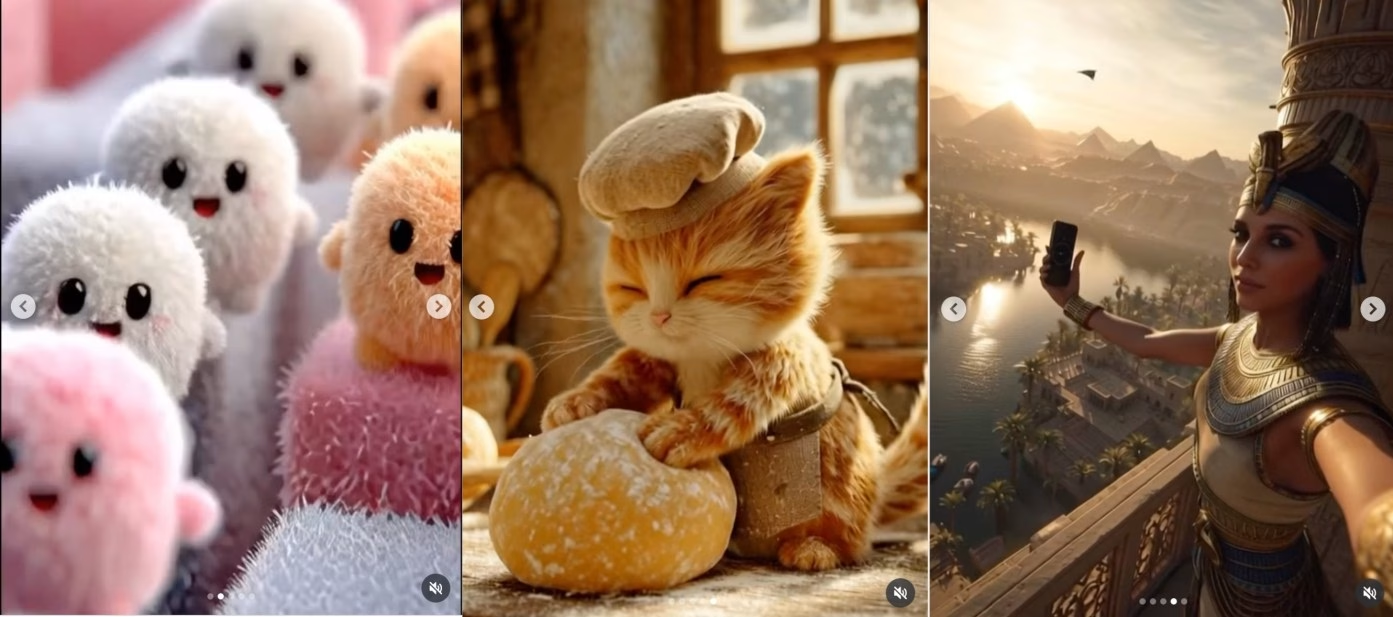New platform aims to redefine content creation with AI-generated videos, sparking debate.

Meta has officially entered the AI-generated video arena with the launch of "Vibes," a novel short-form video feed designed to deliver an endless stream of AI-created content. Rolling out on September 25, 2025, Vibes integrates directly into the Meta AI app and the meta.ai platform, aiming to revolutionize how users consume and create short-form video content. The platform draws immediate comparisons to established giants like TikTok and Instagram Reels, but with a distinct, AI-driven twist: every video is generated by artificial intelligence, a move that's already sparking considerable discussion within the tech community.
At its core, Vibes functions as a dynamic feed where users can discover, generate, and share AI-powered videos, each typically under 60 seconds. Unlike traditional short-form platforms that rely on human creators, Vibes harnesses Meta's advanced AI models to produce content on demand. Users can simply input text prompts – imagine requesting "a cat DJing in space" or "a serene forest with glowing mushrooms" – and the system crafts complete videos, often incorporating visuals, animations, music, and even text overlays. This democratization of video creation is a significant aspect of the launch, potentially lowering the barrier to entry for content generation.
Meta has positioned Vibes as a key evolution of its Meta AI app, emphasizing its goal to make AI video creation accessible to a broad audience. The feature is initially available to select users in the U.S., with plans for wider rollout in the near future. Access is currently provided through the updated Meta AI app on both iOS and Android devices, as well as via the web at meta.ai. While a global launch timeline hasn't been specified, Meta has indicated a strategy of rapid scaling based on user engagement and feedback.
Key technical specifications highlight the platform's design:
This initiative builds upon Meta's prior forays into AI-powered content, such as the image-to-video tools introduced for advertisers in 2024. Vibes, however, aims to bring this generative capability directly to the everyday user, potentially leading to an explosion of hyper-personalized, algorithmically generated content.
Meta's announcement clearly signals its ambition to be a leader in AI-driven creative tools. In official statements, the company has described Vibes as "a new way to discover and create AI videos," aiming to "spark joy and inspiration" through its sheer variety. Chris Cox, Meta's Chief Product Officer, elaborated that the platform seeks to "challenge the status quo of short-form video by removing barriers to entry—no cameras, no editing software, just imagination." This aligns with Meta's broader 2025 strategy, which includes a substantial investment in AI research and development.
However, the initial reception has been mixed, with some critics already labeling the content as "AI slop." This term, popularized by TechCrunch's reporting on the launch, points to concerns about the potential for low-quality, repetitive, or even nonsensical videos flooding the platform. While Meta emphasizes ethical guardrails, including metadata for transparency and content moderation tools, the sheer volume of AI-generated content could pose significant challenges for maintaining quality and authenticity. The question remains: will Vibes become a playground for genuine creativity, or a vast repository of synthetic, uninspired media?
What sets Vibes apart in an increasingly crowded short-form video landscape? Meta is touting several key differentiators. Firstly, its personalized feed aims to go beyond algorithmic curation by generating content in real-time based on trending themes and user preferences, much like TikTok's "For You Page" but with AI-generated material. Secondly, the platform's remixing and collaboration features could foster a unique community-driven ecosystem, offering a more advanced creative toolkit than what's currently available on platforms like Instagram Reels.
Furthermore, the deep integration with Meta's existing app family is a significant advantage. Unlike standalone AI tools, Vibes allows for seamless transitions from creation to sharing across Instagram, Facebook, and WhatsApp. This cross-platform synergy could drive adoption and engagement. Meta also highlights an accessibility focus, with voice prompts and low-data modes intended to make the platform inclusive for global users, initially supporting English, Spanish, and Hindi.
Early reactions have been a mix of excitement and skepticism. Social media is abuzz with users experimenting with creative prompts, sharing their AI-generated creations. Yet, industry analysts express caution. Some worry that Vibes could dilute authentic human creativity or overwhelm users with synthetic media. The potential for AI misinformation and deepfakes also remains a significant concern, even with Meta's stated commitment to transparency. Early metrics, however, suggest strong initial adoption, with over a million videos reportedly generated within the first few hours of its launch.
Meta's entry into AI-generated video with Vibes arrives at a critical juncture for the short-form video market, a sector already valued in the hundreds of billions of dollars globally. By making AI video generation free and seemingly effortless, Meta could significantly accelerate the shift towards synthetic content. This might translate to reduced production costs for creators, but it also raises fundamental questions about authenticity and originality in the digital space.
The launch also intensifies competition. TikTok is reportedly experimenting with similar AI-driven content feeds, and YouTube Shorts is exploring generative tools. For Meta, Vibes represents a significant bet on AI as the next major engagement engine, particularly as growth on its established platforms begins to plateau. If successful, Vibes could not only boost user engagement but also unlock new avenues for targeted advertising, potentially generating billions in additional revenue. The platform's success will likely hinge on Meta's ability to balance the novelty of AI generation with robust quality controls and a clear strategy for fostering genuine creative expression amidst the potential for "AI slop."